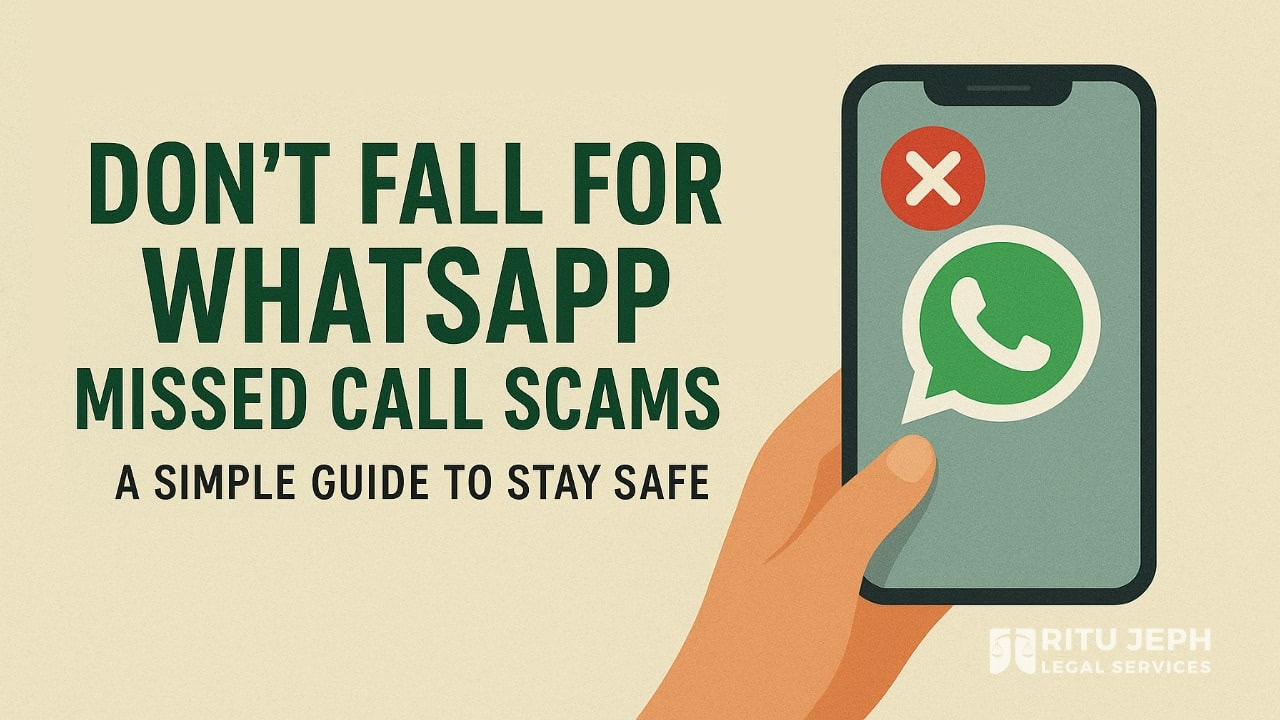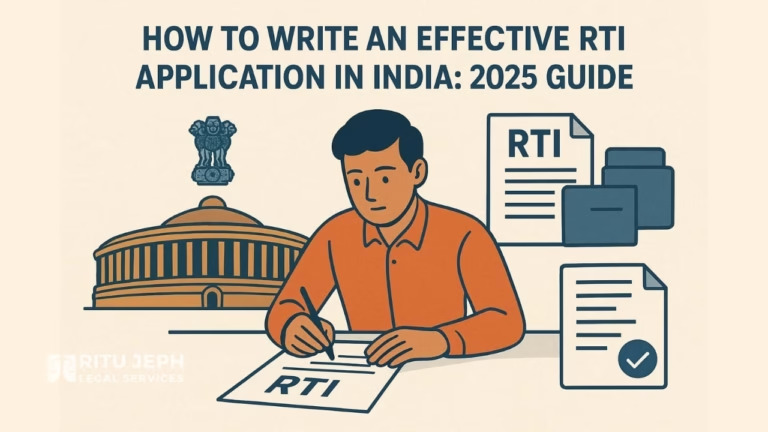Book Appointment Now

Don’t Fall for the WhatsApp Missed Call Scam: Tips to Protect Yourself
Stay ahead of evolving online scams like Missed call scam and Spam messages, and safeguard yourself with expert tips. Click and read the complete article.
The WhatsApp missed call scam has become a pervasive threat in the digital landscape, continually adapting to exploit users’ curiosity and trust. As of 2025, with WhatsApp boasting over 3 billion active users worldwide, scammers are leveraging this platform more aggressively than ever. This scam typically involves receiving a missed call from an unknown international number, prompting users to call back and potentially fall into a trap that leads to financial loss, data breaches, or malware infection. Recent reports highlight a surge in such incidents, with cybersecurity experts noting an increase in sophisticated tactics like AI-assisted Voice Cloning and DeepFake profiles. This updated guide not only explains the mechanics of the scam but also incorporates the latest news, government initiatives in India, and emerging social trends to provide a comprehensive resource for staying safe. By understanding these elements, users can better navigate the evolving cyber threat environment.
ALSO READ: Copyright Protection Treaties: The Berne Convention and TRIPS Agreement
Recent News and Developments
In the first half of 2025 alone, WhatsApp has aggressively combated scam activities by deleting over 6.8 million accounts linked to global criminal networks. This crackdown, announced by Meta, targets scam centers worldwide that orchestrate missed call schemes and other frauds. Similarly, Dataconomy reported that these removals are part of a broader effort to enhance platform security amid rising complaints. Meta has also introduced updated scam activity alerts, which notify users of suspicious connection requests or group additions from unknown contacts.
Other notable developments include the emergence of variants like the ‘Add This Number to WhatsApp‘ scam, where fraudsters trick users into adding malicious contacts that lead to phishing or malware distribution. Additionally, ongoing stock pump-and-dump schemes on WhatsApp have resurfaced in 2025, luring victims with fake investment tips via missed calls or messages. These news items underscore the scam’s persistence, with Interpol estimating global losses from WhatsApp-related frauds exceeding $1.2 billion in 2024, a figure likely to rise this year. Cybersecurity blogs and media outlets continue to warn about inventive attack vectors, emphasizing the need for immediate user vigilance.
Government Initiatives in India
The Indian government has ramped up efforts to combat cyber frauds, including WhatsApp scams, through targeted initiatives. The Indian Cyber Crime Coordination Centre (I4C) under the Ministry of Home Affairs plays a pivotal role, sharing threat intelligence with platforms like Meta and Google to dismantle scam operations. In March 2025, the government blocked over 7.8 lakh SIM cards, 83,000 WhatsApp accounts, and 3,000 Skype IDs associated with fraudulent activities. This collaborative approach with WhatsApp aims to curb the misuse of telecom resources for cybercrimes.
Key portals include the National Cyber Crime Reporting Portal (cybercrime.gov.in), where users can report incidents instantly, and the Citizen Financial Cyber Fraud Reporting and Management System, launched in 2021, for quick fraud reporting and fund recovery. I4C also issues advisories on common scams like bogus giveaways and romance frauds perpetrated via apps like WhatsApp. In a innovative move, the government mandated the ‘160’ number series for financial calls in 2025, making legitimate communications easily identifiable and reducing scam calls. These measures, combined with awareness campaigns, have helped mitigate losses, though experts note a continued rise in cyber fraud cases as discussed in recent perspectives.
Social Trends and User Experiences
On social media platforms, users are increasingly sharing experiences and tips about the WhatsApp missed call scam, fostering a community-driven awareness movement. For instance, cybersecurity accounts urge people to “think before you call back,” highlighting how a simple missed call can lead to elaborate traps. Others share hacks, such as preferring WhatsApp calls to avoid carrier scam alerts, reflecting a shift towards app-based communication for safety.
Viral posts detail encounters with impersonators, like missed calls from numbers claiming to be high-profile figures such as Elon Musk, prompting discussions on scam detection. Users also question suspicious bank-related messages following missed calls, emphasizing the importance of verification. This trend of crowdsourced vigilance is amplified by influencers and experts, with hashtags like #ScamAlert gaining traction. Social media has become a double-edged sword: while it spreads awareness, scammers exploit it for recruitment. Overall, these trends show a growing digital literacy among users, with more people reporting and educating others proactively.
ALSO READ: Detailed Guide to the Code of Civil Procedure, 1908: All 51 Orders and Key Sections Explained
How the WhatsApp Missed Call Scam Works
Scammers often use international numbers with codes like +234 (Nigeria), +855 (Cambodia), or +62 (Indonesia) to leave missed calls, exploiting curiosity. Calling back might connect to premium-rate lines or scammers impersonating officials. Engagement via WhatsApp can lead to phishing links or malware. Recent evolutions include AI-generated voices for realism and spoofed local numbers. Deepfake profiles add credibility, making victims more likely to share sensitive data like OTPs.
Beyond immediate financial hits from premium calls or drained accounts, the scam risks identity theft and device compromise. With a 30% rise in WhatsApp scams in 2024, losses are staggering. In India, cyber frauds have escalated, prompting government interventions. The psychological impact, including stress from impersonation, compounds the danger.
Tips to Protect Yourself
- Ignore Unknown Calls: Don’t return missed calls from unfamiliar numbers; use reverse lookups if curious.
- Activate Two-Step Verification: Secure your WhatsApp with a PIN.
- Block and Report: Flag suspicious contacts in-app.
- Verify Identities: Confirm unusual requests via direct calls.
- Avoid Links: Never click unsolicited links.
- Update Apps: Keep WhatsApp current for security fixes.
- Privacy Controls: Limit visibility to contacts.
- Report Promptly: Use government portals for incidents. Additionally, monitor for AI-driven scams and educate peers.
What to Do If You’ve Been Scammed
Disconnect immediately, change passwords, contact banks, scan devices, and report via WhatsApp or National Cyber Crime Reporting Portal cybercrime.gov.in. Quick action can minimize damage.
As the WhatsApp missed call scam evolves, staying informed through news, government resources, and social insights is crucial. By adopting these tips and contributing to awareness, we can collectively reduce its impact. Protect yourself and share this guide.



